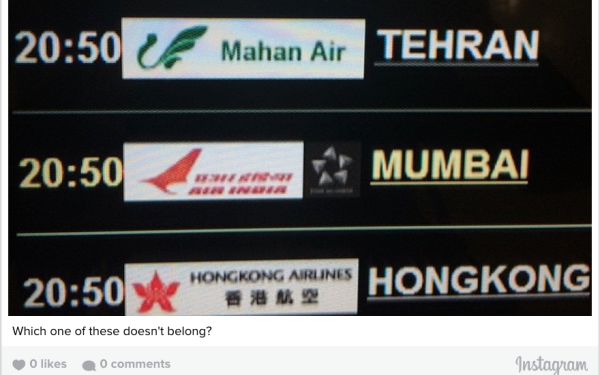Crimea River: OFAC Imposes Sanctions On The Crimea
Lost in all of last week’s news about Cuba sanctions relaxation, and the hustle and bustle preceding the imminent Christmas holiday, was the issuance of a new comprehensive trade embargo targeting the Crimea. Obviously these new sanctions are part of the Ukraine-related sanctions program imposed as a result of the Russian Federation’s actions vis-a-vis the Ukraine. What is interesting about these new sanctions program is that it’s not the targeted, or even micro-targeted, sanctions we have seen imposed thus far in relation to the situation in the Ukraine. Rather, this is a trade embargo imposed upon the region of Crimea, similar in scope to the kind of trade embargo targeting Iran and Sudan.
While, there will undoubtedly be numerous posts concerning these new sanctions in the future, here are my top three (3) things you need to know about the new trade embargo added to the Ukraine-related sanctions program:
1. Prohibitions on U.S. Persons: The new prohibitions extend to new investment in Crimea; importation of Crimean goods, services, or technology into the U.S.; exportation and reexportation of goods, services, and technology to Crimea; and facilitation of such prohibited transactions by foreign persons. It is important to note, however, that these transactions are imposed specifically on U.S. persons, and at this time there is no analogous prohibition to that found in the Iranian Transactions and Sanctions Regulations (“ITSR”), 31 C.F.R. 560.205, which prohibits any person from exporting to Iran a U.S. origin good, service, or technology if that person knows that the export is intended for Iran and the export is subject to export license application requirements. Whether or not such a prohibition will appear in new regulations promulgated pursuant to this executive order is unknown at this time, but it is likely that in the coming weeks we will see new regulations from the United States Department of the Treasury’s Office of Foreign Assets Control (“OFAC”) and the United States Department of Commerce Bureau of Industry and Security (“BIS”) which should cover this type of activity.
2. Blocking of Those Operating in the Ukraine: While the statutory authority underlying these sanctions, the International Emergency Economic Powers Act (“IEEPA”), does not automatically block persons, the executive order imposing the sanctions does contain a blocking authority. Under the new Ukraine-related Crimea sanctions executive order persons can be blocked upon a finding by the Secretary of the Treasury, in consultation with the Secretary of State, that the person is: 1) operating in Crimea; 2) a leader of an entity operating in Crimea; 3) owned or controlled by a person blocked pursuant to the executive order; or 4) someone who provides material assistance or goods or services to a person blocked pursuant to the executive order.
3. Humanitarian Trade Authorized: At the same time that the President issued the new Ukraine-related Crimea sanctions executive order, OFAC issued Ukraine-related General License 4. The new general license authorizes the export of food, agricultural commodities, medicine, medical devices, and medical supplies to the Crimea. Of course there are some caveats to this general license which are substantially similar to the general authorizations for these types of exports in the ITSR, 31 C.F.R. 560.530.
It is seems evident from the language used in the executive order itself, the general license authorizing humanitarian trade, and OFAC’s announcement of this program, that these new prohibitions and blocking authority will be contained in a final rule amending the Ukraine Related Sanctions Regulations contained at 31 C.F.R. Part 589. While that seems clear enough, the interpretations, general licenses, and clarifying language–limited in their clarity as they may ultimately be–will likely not be out for at least a few weeks. Until that time, as U.S. companies and individuals scramble to determine the impact of these new sanctions, it’s best to contact an attorney experienced in dealing with OFAC compliance matters to understand the effect these new Crimea prohibitions will have on your transactions.



